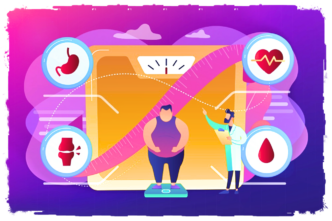Curious about weight loss meds? This article breaks down the facts—benefits, risks, and side effects—without the hype. Get the real scoop on what works, what doesn’t, and what you need to know.
WORDS LIM TECK CHOON
Weight loss medications are an attractive notion to most of us. They promise quick results, and taking these medications seem far more convenient than changing our lifestyle and daily routines!
Furthermore, social media these days are rife with influencers raving about these medications.
WELL, THESE SOCIAL MEDIA INFLUENCERS & ELON MUSK ARE KIND OF CORRECT
That certain famous weight-loss medication touted by Elon Musk and the Kardashians, among many others, is legitimate.
It falls under a group of medications called glucagon-like peptide-1 receptor agonists, or GLP-1 agonists for short.
In fact, the latest edition of the Malaysian Clinical Guidelines for the Management of Obesity contains 5 recommended type of anti-obesity medications that can be prescribed by doctors.
YES, THERE ARE MORE THAN ONE TYPE OF WEIGHT LOSS MEDICATION!
Selective Pancreatic Lipase Inhibitors
- Inhibit the breakdown of fats.
- Cause about 30% of consumed fats to be excreted mainly in the stools.
Noradrenergic Sympathomimetic Amine Agents
- Suppress appetite and increase basal metabolic rate.
Gamma-Aminobutyric Acid (GABA) Receptor Modulators
- Can be taken with a noradrenergic sympathomimetic amine agent.
- Increase energy use as well as reduce energy efficiency and caloric intake.
Opioid Antagonists
- Taken along with an antidepressant.
- Suppress appetite.
- Control eating behaviour and response to food craving.
GLP-1 Agonists
- That famous “O” weight-loss drug is an example of this group of medications.
- Improve control of blood glucose levels by stimulating insulin secretion.
- Suppress glucagon secretion and appetite.
WELL, THE INFLUENCERS ARE ALSO WRONG AS MEDICATIONS ARE NOT THE BE-ALL AND END-ALL OF OBESITY TREATMENT
The first line treatment is still a regimen of balanced meals—in the case of overweight people, this also means reducing the number of calories consumed by controlling food portion sizes—and regular physical activity.
There are several reasons why this is the case.
#1 You need to learn how to maintain your healthy body weight.
If you haven’t mastered the core skills of maintaining a healthy body weight and instead relied on medications, then you are likely to resort to medications in the future when your weight balloons up again!
This is especially true if you continue your mealtime and sedentary living habits that caused you to become overweight in the first place.
On the other hand, once you’ve successfully mastered how to prepare and eat balanced meals as well as incorporated regular physical activity into your daily life, you can ‘do your own thing’ in the future without depending on the doctor.
#2 Anti-obesity medications can cost quite a lot.
This may not be an issue for Elon Musk, but it can be for many of us!
#3 Anti-obesity medications have their side effects.
WHEN SHOULD WEIGHT LOSS MEDICATIONS BE PRESCRIBED?
Medications should be prescribed only when lifestyle interventions have been carried out properly but still fail to help the person achieve their weight loss goals.
Even then, the person needs to meet the following criteria:
- You don’t have an existing health condition, such as diabetes or high blood pressure, and your body mass index (BMI) is 30 kg/m2 or higher.
- You have an existing health condition, such as diabetes or high blood pressure, and your BMI is 27 kg/m2 or higher.
| Body mass index (BMI) is a simple way to estimate whether a person’s weight is in a healthy range based on their height.
BMI = Your weight (in kg) ÷ (Your height, in meters)2 BMI gives a rough idea of body fat levels and potential health risks. However, it’s not perfect—it doesn’t distinguish between fat and muscle, so a very muscular person might have a high BMI without actually having excess fat. It’s best used as a general screening tool rather than a precise measure of health. |
Even then, these lifestyle interventions must still be carried out. Medications are only the “extra” to help the person achieve those weight loss goals!
The Use of Anti-Obesity Medications Is Carefully Supervised and Monitored By the Doctor
This is because all the medications that have been approved for use have their side effects, including possible negative impact on the heart.
Generally, the doctor will review the person’s weight loss progress once a month for the first 3 months, and once at least every 3 months subsequently.
If the person still fails to lose 5% of their initial body weight after 3 months of starting on an anti-obesity medication, then the medication would be stopped.
| This article is part of our series on effective and research-based weight loss strategies. |
Reference: Malaysia Health Technology Assessment Section (MaHTAS). (2023, May). Management of obesity in adults. In Clinical practice guidelines: Management of obesity (2nd ed., pp. 43−51). Ministry of Health Malaysia.














